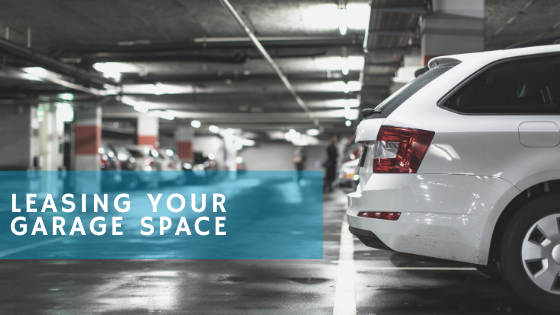
With car spaces at such a premium in the city and inner city, it’s no wonder growing numbers of owners with space to spare are leasing car spaces out to nearby workers or nearby residents short on space of their own.
Especially in commercial districts and properties near train stations where street parking is limited and parking stations are expensive, there is a demand for workers and commuters to have a secure and reliable place to leave their car.
There may also be other people in your complex that would appreciate a little extra storage space beyond their own garage.
What are the implications of leasing out your garage?
Unless your strata scheme has a specific by-law restricting the ability to rent a parking space or garage to a third-party then there’s nothing to prevent you from doing so.
This space is considered part of your lot allocation.
If you’re interested in purchasing a property in a strata scheme with the intention of renting out the garage, always check the by-laws prior to buying the apartment.
However, before embarking on a lease arrangement, it’s important to enlist the aid of a lawyer in drawing up a lease agreement that clarifies both parties’ expectations (in detail).
Houses for rent are governed by the Residential Tenancies Act, which lays down the law for landlords and tenants on everything from who is responsible for repairs and maintenance to grounds for ending a tenancy.
As non-residential spaces, car parks and garages are not covered by the RTA.
What’s the Arrangement?
Private parties effectively enter a commercial leasing arrangement and experts warn that contracts that are light on detail can lead to trouble! So be mindful in the agreement drafting stages.
A part of the process, we’d strongly recommend having the renter sign a detailed Parking Space Lease. This way you’ll have a legally binding document that outlines the terms of the agreement.
If you want to limit access, you could use the lease to specify that the space can only be used during certain times such as business hours or on the weekend. You can also set the time period so that in six months for example, depending on market conditions, you could increase the rent.
It’s important to be mindful that while the renter is on the scheme’s property, you are liable for any damage they may cause to your lot – in the same way that you’re liable for any guests that visits your apartment.
You may consider taking out landlord insurance for peace of mind. Insurance should be addressed up front.
Key issues to address in a lease include defining the exact space for rent, its current condition and the condition in which the property is to be left at the end of the agreement, the duration of the agreement, the mechanism for ending it, the process for resolving problems (such as rent arrears) and the nature of the possession.
Will the tenant have exclusive access, for example, or will the owner be walking through it regularly or using one corner for storage?
It’s also critical to clarify who is responsible for cleaning, maintaining and repairing the space. Unlike a residential tenancy agreement, unless the parties agree on a regime for responsibility, neither party actually has an obligation to do it.
Like the apartment itself, if you are using the garage for storage, you’re welcome to construct free-standing shelving without permission from the Strata Committee. But any structural changes would require prior approval.
Can I lease a Garage out as a Bedroom?
While using the garage for storage or a vehicle is legal, this space cannot be used as a bedroom because it is not deemed to be a “habitable” area. There are serious safety issues with living in a garage and there are Council regulations also.
Furthermore, standard insurance policies held by the Owners Corporation would not include human occupation of the garage.
If you believe that a garage in your scheme is being inhabited, call your Strata Manager who will then contact the owner for further investigation. If needed, the NSW Civil and Administrative Tribunal (NCAT) has the power to intervene and issue an order to the owner.


